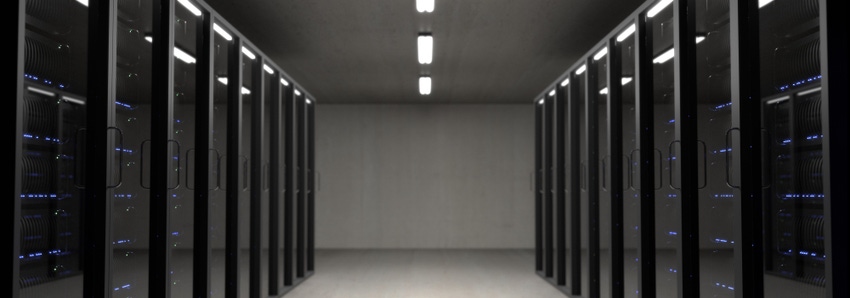Big Data is the Soil on Which AI Can Grow Says Siemens' Michael May
April 20, 2017

We recently secured an exclusive interview with Siemens’ Michael May, to learn how the technology company is currently deploying AI in their business, and how they plan to do so in the future.
[caption id="attachment_7503" align="alignleft" width="300"] Michael May, Siemens[/caption]
Michael May, Siemens[/caption]
Siemens has been operating for more than 165 years, and the German technological company has been on the forefront of innovation during that whole period, and they continue to come up with new and exciting technology. This is why we were interested in talking to their R&D Engineering Manager, Michael May, who'll keynote at this year's AI Summit in London.
Michael May is Head of the Technology Field Business Analytics & Monitoring at Siemens Corporate Technology, Munich, and responsible for fourteen research groups in Europe, US, and Asia. Michael is driving research at Siemens in AI, data analytics, machine learning and big data architectures. In the last two years he was responsible for creating a platform for Big Data and machine learning applications across Siemens’ business.
Before joining Siemens in 2013, Michael was Head of the Knowledge Discovery Department at the Fraunhofer Institute for Intelligent Analysis and Information Systems in Bonn, Germany. In cooperation with industry he developed Big Data Analytics and machine learning applications in sectors ranging from telecommunication, automotive, and retail to finance and advertising.
AI and big data
We started off our discussion with May by asking him to detail how Siemens is currently using AI. "Siemens has a long tradition in using AI," he began. "Already 20 years ago neural networks were deployed in more than 30 steel plants world-wide for online monitoring. Since then there have always been areas where neural networks where applied, from price forecasting for commodities to condition monitoring for our equipment."
He continued, "But it is fair to say that despite some practical proof points and successes it was pre-dominantly a research topic. This is now rapidly changing. For us it is the logical next stage of development, now that IoT operating systems such as MindSphere for connecting devices to the cloud and processing large amounts of data are becoming common.
May then made a interesting statement in relation to the importance of big data. "Big Data is the soil on which AI can grow," he claimed. He certainly has a point. With the rise of AI, more and more companies are looking at how to store these large amounts of data, which brought us onto our next question. We wanted to know what are the biggest challenges for companies looking to adopt AI.
The importance of AI experts
"One obvious challenge is to find the right talent, especially if you take into account that a fresh machine learning post-doc still has to learn a lot about practical real-world applications of AI before he will be really productive," he answered.
With AI talent at an absolute premium, it's no wonder that countries like Canada are investing heavily in the new technology in order to attract AI experts to work in their country, and in turn help to develop young talent in the field.
Yet, Siemens is operating in a very crowded area when it comes to AI. What sets them apart from their competitors who are using the new technology? "For Siemens AI is not a new topic. My department within corporate research, where most AI competence is concentrated, has around 200 data scientists and machine learning experts, many of them with a PhD degree in areas related to machine learning and advanced data analytics," he explained.
"Many competitors still need to assemble this critical mass of experts. Equally important, many of our AI experts have years of experience in collaborating with the domain experts in our business units. They have learned to translate domain know-how into working AI solutions. This combination of domain know-how and AI skills will be key in the short and mid-term, as we are (despite spectacular successes in some areas, especially imaging and game-playing) still very far away from general solutions that can fully autonomously learn from raw data," answered May.
We then asked May to detail which industries they are gaining the most traction in relation to AI. "AI will have profound impact on most areas where Siemens is active, e.g. industry, smart grids, energy, medical equipment, industrial automation, and smart cities," he stated.
"It is hard to single out a specific area, but the strongest proof points we have so far are arguably in using reinforcement learning for self-optimising turbines and deep learning for medical imaging," finished May.
However, AI is already having a significant impact on business, and May explained which areas Siemens is seeing the biggest effect thanks to the new technology. "Again, I cannot think of a single business area that will not be potentially impacted by AI," he started. "Usually adoption is quickest in the service business, since these are usually most advanced in data collection, and it is relatively easy to figure out a basic business case."
"But in the mid-term, areas like product design and operations might have a even bigger effect. Ultimately, we will see AI along the full product life-cycle," concluded May.
AI and the future
With AI being one of the key buzzwords of 2017, there are many companies attempting to adopt AI into their businesses. May discussed what he thought the rate of adoption of AI would be industry wide in 2017, and how he saw it changing things for their business in the future. "I think many companies put AI on their strategic agenda and start to play around with it," he highlighted.
"But it will take some time until it takes the step from prototype to product, especially if AI is linked to decision automation. This is extremely tricky because of safety and security considerations; e.g., it took us many years to bring self-optimizing gas turbines from prototype to production level."
He continued, "I also believe that a good share of initial AI projects will fail because people underestimate these (and other) difficulties. AI has also the unfortunate characteristic of either being ignored or totally over-hyped by the popular press. A bit more realism would be helpful."
Realism would certainly be helpful towards the adoption of AI, so we asked May if he could detail where he saw Siemens in five years' time in relation to AI. "My personal vision is to help transforming Siemens from a company that uses machine learning and AI in some selected areas to a company that uses AI along the whole product life-cycle and also its internal processes," he stated.
"It is probably not something that can be fully achieved in five years, but we will see an impressive and growing number of AI applications until then," concluded May.
About the Author(s)
You May Also Like
.jpg?width=700&auto=webp&quality=80&disable=upscale)
.jpg?width=700&auto=webp&quality=80&disable=upscale)
.jpg?width=700&auto=webp&quality=80&disable=upscale)



.jpg?width=300&auto=webp&quality=80&disable=upscale)
.jpg?width=300&auto=webp&quality=80&disable=upscale)